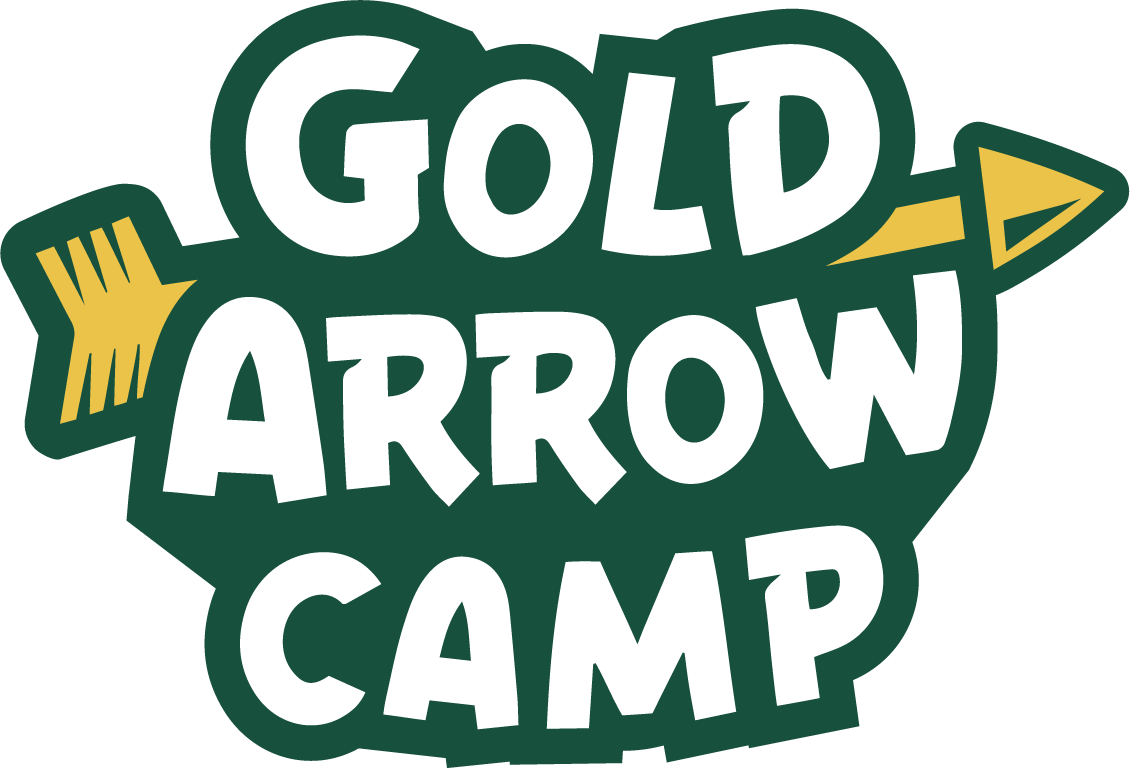Coaching Kids to Better Friendships
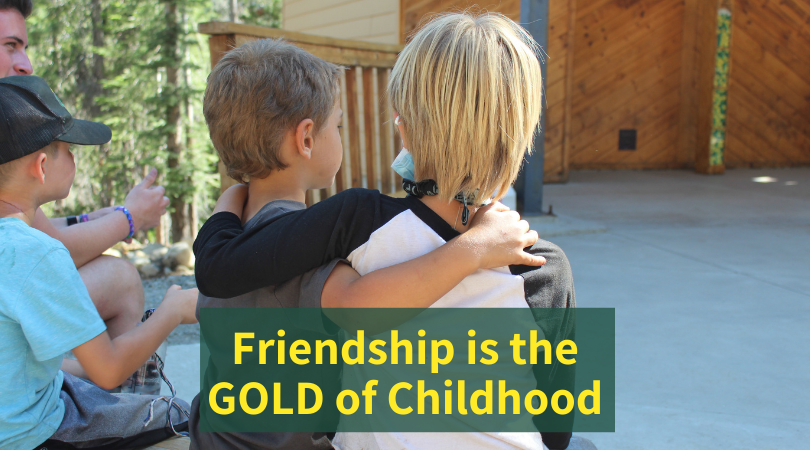
“Friends are everything. They are always there if you have a problem or if you get hurt, they can always help you up.”
– Patricio, Camper, Age 8
The commonly accepted trajectory of do well in school -> get into a good college -> make a lot of money -> flourish in life is not exactly accurate. You only have to know one unhappy wealthy person to know that’s not the path that will lead to happiness or fulfillment.
What is a more accurate trajectory? good interpersonal (social) skills -> positive relationships -> flourish in life.
Michael Thompson’s statement, “Friendship is the gold of childhood,” stuck with me long after I attended his conference session on the social lives of children. Friendship is not just the gold of childhood, but also of life. In my research for my Master’s degree in Psychology, I looked closely at studies related to friendship, social skills, and well-being. What I found was not surprising. For children, and adults as well, positive relationships are the best predictor of overall happiness and well-being. As parents, teachers, and counselors, we should be putting a primary emphasis on helping kids develop the social skills they need to make and keep friends.
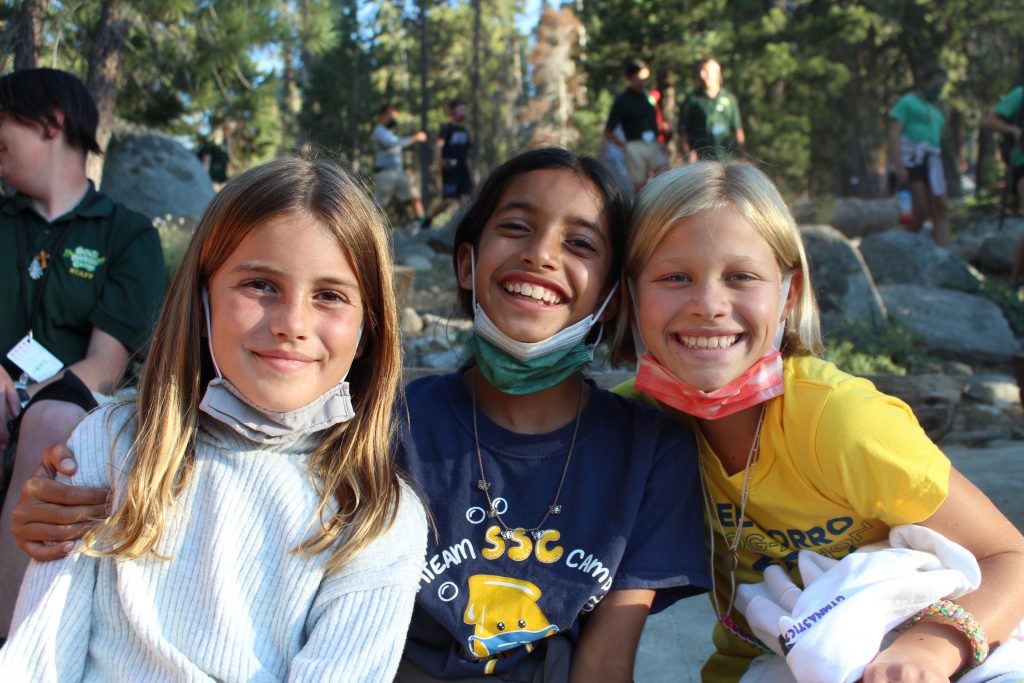
Unfortunately, our culture is not supporting the development of healthy, solid friendships between kids. Friendship is more important than any academic subject or athletic skill, and yet the way our kids spend their time does not reflect this importance. For many kids, there simply isn’t time in their lives for developing strong, close friendships.
What are our kids learning about friendship in this Instagram, Snapchat, and texting era of “friends?” Many boast hundreds, even thousands, of “friends” and “likes” on photos. Yet some of those same kids don’t have one single person in their lives that meets the criteria of a true and trusted friend. Face-to-face social skills, such as being able to read non-verbal cues, are learned through practice. If communication is primarily through media, then those skills are not being honed.
Another cultural factor that is counter-productive to the development of solid friendships is the constant, high-stakes competition our children are constantly in with their peers. Who’s ranked higher at school? Who made the “A” team? Who’s more popular? Often, instead of being truly supportive and encouraging of each other, kids want their peers to fail.
Making friends, and being a good friend, doesn’t come naturally to all people. And, coupled with the crazy culture we’re in, it’s no surprise that many kids are struggling to form strong friendships.
Friends are the reason campers and counselors return to Gold Arrow Camp year after year. “Make Friends” is one of the three main goals we chant at the opening of camp each session. At camp, there is time for friendship — precious, relaxing time to get to know each other, spend time making memories, and communicating face-to-face. Our whole camp community is built around inclusion, respect, and kindness. There is no competition at camp, no “A” team or “popular” group. Just kids having fun together and learning to live and play with each other, work out disagreements, and become better friends to each other.
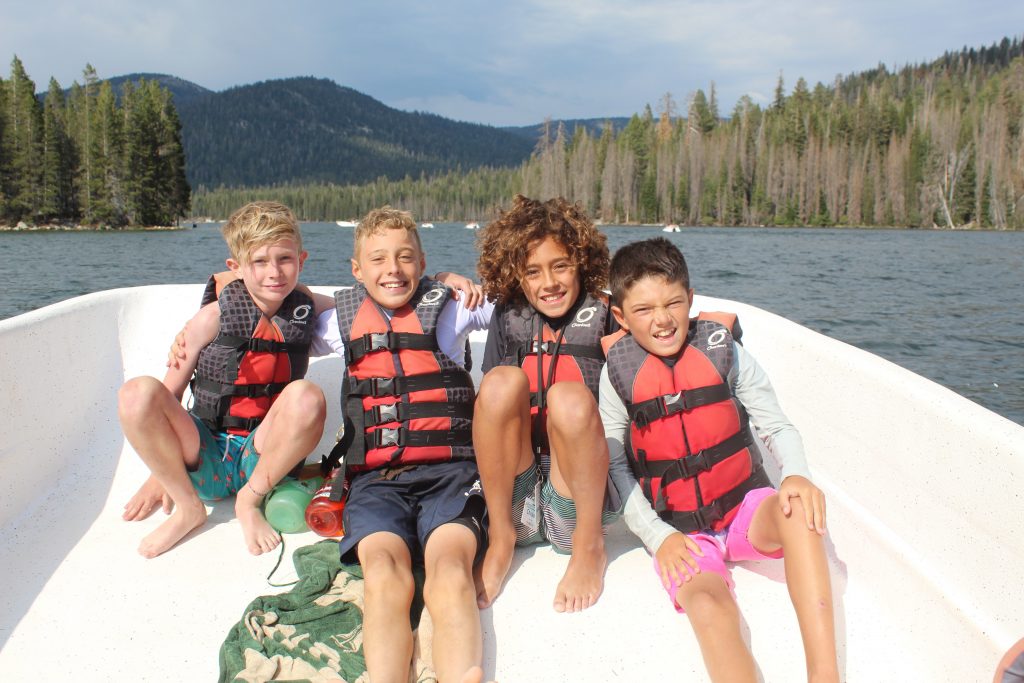
A few of the many friendship skills we focus on at GAC include:
Teaching Campers the Friendship Skill of Asking Questions
Friendship Tip: Find Your Best Calm Down Strategy
“A friend is someone you’re not afraid to be yourself with.”
– Hannah, Camper, Age 14
Counselors are trained to help kids connect from the moment they get on the bus until the last goodbye. Long talks at meals, around the campfire, and under the stars in sleeping bags are uninterrupted by cell phones and other technological distractions. Campers can’t “tune out” by putting earphones in. They stay engaged with each other and learn to connect. Counselors gently coach campers who need to develop social skills in areas such as listening skills, empathy, sharing, flexibility, initiating conversations, and understanding non-verbal cues. They encourage campers to be intentional about being good friends to each other and observant about what they appreciate about their friends.
“Friends are awesome, because they stand up for you, and they care for you.”
– Joey, Camper, Age 11
At one final campfire gathering last summer, the Randy Newman song, “You’ve Got a Friend in Me,” came on during the slide show. A group of four twelve-year-old boys sitting on the bench in front of me spontaneously put their arms around each other and started swaying back and forth, singing along to the song. I will never forget that vivid picture of the power of camp friendships.
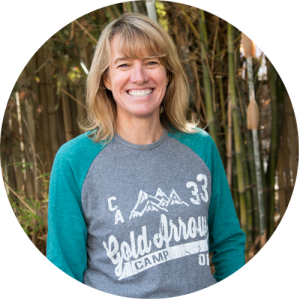
Audrey “Sunshine” Monke, MA, has been the owner of Gold Arrow Camp since 1989 and currently serves as the Chief Visionary Officer. In addition to her vision-casting and mentoring at GAC, Sunshine is an author (Happy Campers: 9 Summer Camp Secrets for Raising Kids Who Become Thriving Adults), podcast host, speaker and coach on the topics of parenting, social skills, and happiness. Find out more at her website, Sunshine Parenting.
